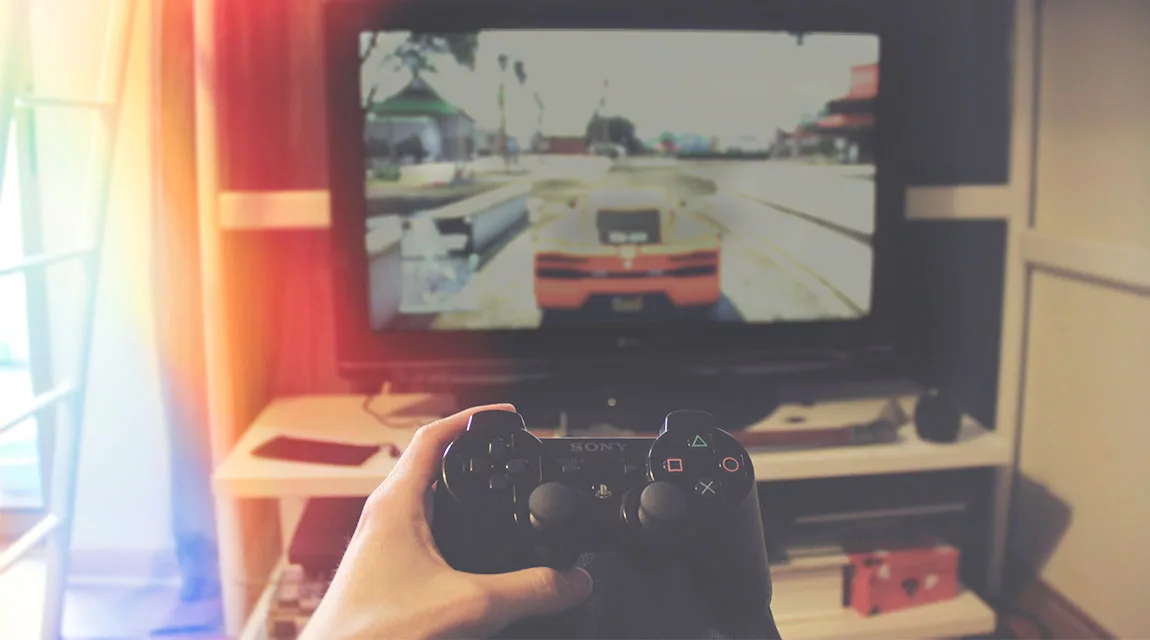The World Health Organization (WHO) has now classified gaming disorder as a mental health condition. WHO defines gaming disorder an addiction to playing video games. Consequently, this new disorder is included in the 11th edition of WHO’s International Classification of Diseases Manual.
Gaming disorder is similar to other addictions, such as gambling addiction or substance abuse. Therefore, this disorder is characterized by the inability to control an obsession with video gaming. As a result, the need to continue the behavior increases over time.
The World Health Organization decided to classify gaming addiction disorder based on reviews of available evidence. In addition, experts from a variety of disciplines and geographical regions weighed in.
WHO has followed “the trends [and] developments that have taken place in populations and in the professional field,” says Dr. Vladimir Poznyak, a member of WHO’s Department of Mental Health and Substance Abuse.
The WHO Definition of Gaming Disorder
Here is the full definition of gaming disorder from the World Health Organization:
Gaming disorder: a pattern of gaming behavior (“digital-gaming” or “video-gaming”) characterized by impaired control over gaming, increasing priority given to gaming over other activities to the extent that gaming takes precedence over other interests and daily activities, and continuation or escalation of gaming despite the occurrence of negative consequences.
Signs of Gaming Addiction Disorder
To summarize, WHO lists three main criteria for the diagnosis of Gaming Disorder:
- Inability to control their urge to play video games
- Gaming becomes more important than any other activity
- People continue to play video games despite the negative consequences of the behavior on their relationships, academic performance, and/or work.
Moreover, video gaming disorder may result in disturbed sleep patterns, disrupted eating habits, and a lack of physical activity, according to WHO.
Furthermore, for a diagnosis to be made, the negative pattern of behavior must last at least 12 months. Thus, it must last longer than just a few hours or a few days. However, an exception could be made in severe cases.

Why WHO Classification Matters
The WHO’s International Classification of Diseases (ICD) is the basis for identifying global health trends and statistics. Moreover, it serves as the international standard for reporting diseases and health conditions.
Consequently, medical practitioners around the world use the ICD to diagnose conditions. Plus, researchers use it to categorize conditions. Therefore, countries take notice of new disorders when planning public health strategies and monitoring trends.
As a result, health professionals around the world will now be more alert to the risks of developing gaming disorder. Furthermore, they will pay more attention and allocate more resources to preventing and treating video game addiction.
Therefore, “people who suffer from these conditions can get appropriate help,” says Dr. Poznyak.
How Many Teens Suffer from Gaming Disorder?
When it comes to teens and video games, almost all American teenagers have done some gaming. According to data cited by the American Medical Association, up to 90 percent of teens play video games.
However, experts disagree about the prevalence of video game addiction. WHO estimates that gaming disorder affects only a “small proportion of people.” A study published in 2017 by the American Journal of Psychiatry found that only between 0.3 and 1 percent of the general population might qualify for a potential acute diagnosis of Internet gaming disorder.
But the number could be much higher in actuality. In fact, some studies show that as many as 15 percent of teens are addicted to gaming.
How to Recognize Video Game Addiction
Those who are addicted to gaming may demonstrate any of the following symptoms:
- Preoccupation with Internet gaming
- Video game withdrawal symptoms, such as sadness, anxiety, and irritability, when games are taken away
- An ongoing need to spend more time gaming
- Inability to reduce time spent playing video games; unsuccessful attempts to quit playing
- Loss of interest in other activities that they previously enjoyed
- Continuing to play despite significant problems caused by gaming
- Lying to family members or others about the amount of time spent on computer gaming
- Using video gaming to relieve or self-medicate negative moods, such as guilt, anxiety, or hopelessness
- Forgoing basic needs, such as eating, sleeping, and hygiene, while playing video games
- Social isolation as a result of gaming
- Losing a job, losing a relationship, or doing poorly in school as a result of gaming.
Therefore, WHO recommends that people who partake in gaming should be alert to the amount of time they spend playing the games. In particular, they should be aware of whether they are gaming while excluding other daily activities.
Internet Addiction and the Brain
When the brain begins to react to online activity, such as gaming, as if it were a drug, the activity becomes an addiction. Studies have shown that such activity causes the brain to release dopamine.
According to the American Psychiatric Association, “Studies suggest that when these individuals are engrossed in Internet games, certain pathways in their brains are triggered in the same direct and intense way that a drug addict’s brain is affected by a particular substance. The gaming prompts a neurological response that influences feelings of pleasure and reward, and the result, in the extreme, is manifested as addictive behavior.”

The Underlying Causes of Video Gaming Disorder
In addition to revealing the impact of gaming on the brain, research has found that teens with Internet addiction are more prone to substance abuse or other addictive behaviors. Such behaviors include self-mutilation, eating disorders, and compulsive shopping.
The study found that teens who engaged in pathological video gaming are more impulsive, anxious, and depressed. In addition, they were more likely to have trouble fitting in.
That’s because computer game addiction is a symptom of underlying mental health challenges, according to Guastello. Research shows a correlation between teenage video game addiction and the prevalence of depression and anxiety. Thus, the outer behavior is a sign of inner discontent. Such discontent may result from trauma, depression, anxiety, or other conditions.
Treatment for Mental Health Issues Underlying Gaming Disorder
Stopping gaming behavior is only the first step in recovery. Teens with computer games addiction need to address the root causes of the addiction. Therefore, experts recommend teen mental health treatment that encompasses clinical and behavioral approaches.
At Newport Academy, rather than offering gaming addiction treatment for teens, we heal underlying trauma, anxiety, and depression. And we give teens healthy coping skills to replace maladaptive behaviors, while helping them build a strong support system made up of family members and healthcare providers.
Teen mental health treatment at Newport Academy utilizes a variety of modalities, including the following:
Cognitive Behavioral Therapy (CBT) helps teens to identify and modify thought and behavior patterns. Therefore, CBT supports teens to shift from the negative toward the positive.
Dialectical Behavioral Therapy (DBT) helps teens acknowledge the unhealthy behaviors they are using to cope with deeper underlying issues. In addition, DBT helps teens find ways to modify these behaviors.
Experiential therapies, such as martial arts, Adventure Therapy, yoga, meditation, and physical fitness activities, give teens positive coping methods to use throughout their lives.
Creative arts therapies, including art therapy, music therapy, and dance therapy, are opportunities for teens to express their emotions in healthy ways.

Moreover, family involvement in treatment and the ongoing recovery process is critical. As a result, family therapy creates a greater likelihood that both the adolescent and the family will heal. Consequently, teens can recover and succeed in treatment.
To summarize, WHO’s classification of gaming disorder will help healthcare and mental health professionals more easily recognize the symptoms of the disorder. Moreover, it encourages them to prioritize treatment for teens and adults who are addicted to computer games. And it demonstrates the importance of prevention and education about teenage video game addiction.
Images courtesy of unsplash
Sources
Am J Psychiatry. 2017 Mar 1;174(3):230-236.
Am J Psychiatry. 2017 Mar 1;174(3):195-196.
Brain Res Brain Res Rev. 1998 Dec;28(3):309-69.
J Addict Med. 2012 Mar;6(1):77-84.






